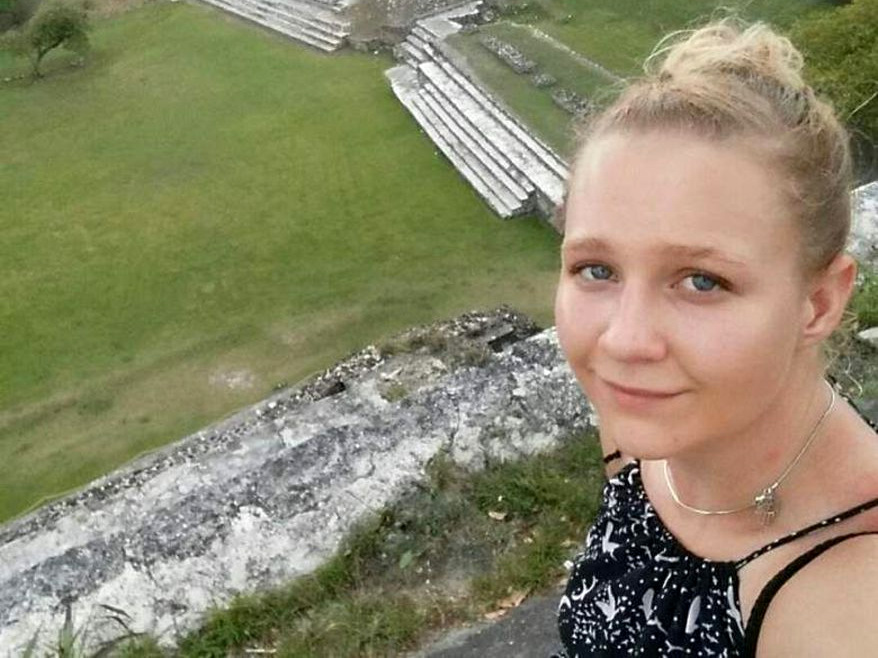
Published in partnership with Shadowproof.
Reality Winner, a twenty-five-year-old National Security Agency contractor, is the first person to be charged with violating the Espionage Act under President Donald Trump’s administration. The contractor allegedly provided a top secret report on Russian hacking to The Intercept.
The Justice Department charged Winner with “removing classified material from a government facility and mailing it to a news outlet in violation of 18 U.S.C. § 793(e)”—more commonly known as a provision of the Espionage Act.
Winner is not accused of espionage. She was allegedly a source for a story that reported the NSA connected a cyber attack on a United States voting software supplier in August 2016 to Russian military intelligence.
The government could have charged Winner with “unauthorized removal and retention of classified documents or material,” which is a misdemeanor (18 U.S.C. § 1924). Instead, Justice Department officials opted to build on President Barack Obama’s record of prosecuting unauthorized disclosures as if they were the work of spies.
When Obama was president, the Justice Department charged more people with violating the Espionage Act than all previous presidents combined. The sheer number of cases represented an agenda on the part of the administration to crack down on disclosures of classified information, even when such information was in the public interest.
A filed affidavit from FBI Special Agent Justin C. Garrick, who investigated the “activities” of Winner, alleges the contractor printed and “improperly removed classified intelligence reporting” on May 5, from an NSA facility in Atlanta, Georgia. She allegedly retained the information before mailing it to The Intercept a few days later.
While whether a foreign power is attacking the country’s election systems and to what extent is clearly of interest to the public, there is no public interest defense available to Winner.
All the Justice Department has to prove—as was the standard in the courts under Obama—is that Winner signed a non-disclosure agreement, which was violated. The very act of disclosure violates the agreement and makes her motives or intent insignificant. It may likely be enough to punish her with jail time for months, regardless of whether lives were ever put at risk.
The criminal complaint against Winner contained details that suggested Intercept reporters embarrassingly failed at tradecraft. The outlet allegedly provided the NSA with a copy of the report Winner allegedly mailed to The Intercept.
“The U.S. Government Agency [NSA] examined the document shared by the News Outlet [The Intercept] and determined the pages of the intelligence reporting appeared to be folded and/or creased, suggesting they had been printed and hand-carried out of a secured space,” according to the complaint.
That led the NSA to conduct an internal audit and eventually uncover Winner, who was allegedly one of six individuals that printed the report. An audit of her desk computer allegedly revealed contact with The Intercept.
Related: Former CIA Agent John Kiriakou Takes Us Inside The Saudi Terror Factory
In a statement, The Intercept responded to the allegations in the affidavit.
“It is important to keep in mind that these documents contain unproven assertions and speculation designed to serve the government’s agenda and as such warrant skepticism. Winner faces allegations that have not been proven. The same is true of the FBI’s claims about how it came to arrest Winner,” the media organization contended.
Yet, what merits attention is the fact that two of the journalists involved in reporting on the report are Richard Esposito and Matthew Cole. They were both at the center of the leak prosecution against CIA whistleblower John Kiriakou as Journalist A and Journalist B.
Kiriakou served a prison sentence at a federal correctional facility in Loretto, Pennsylvania, after authorities found evidence that he confirmed the name of an undercover intelligence agent to a reporter.
Two Reporters At Center Of Leak Prosecution, Again
The complaint against Kiriakou contains allegations that indicate Esposito and Cole have a record of recklessness when it comes to sources.
What largely escalated the government’s interest in prosecuting Kiriakou was the false idea that he provided photos of undercover CIA agents involved in interrogating Guantanamo detainees. “Journalist A” allegedly sent an email to a “defense investigator” that contained the full name of this covert officer in the subject line. He also allegedly sent an email that stated, “My guy came through with his memory.”

Cole, as Kiriakou writes in his book, “Doing Time Like A Spy,” emailed in the summer of 2008 and claimed to be writing a book on the CIA’s rendition, detention, and interrogation program.
A first, second, and third list of names was sent to Kiriakou. Cole asked Kiriakou to put him in contact with any individuals he might know. When Kiriakou indicated he did not know any of these people, Cole wrote, “What about the guy you wrote about in your first book?” (He was referring to a passage in “The Reluctant Spy” about an old boss, who took Abu Zubaydah to a “secret prison for interrogation.”)
Cole wrote, “Wasn’t his name (John)?” To which Kiriakou replied, “Oh, you mean, (John Doe).” He indicated he did not know what happened to him and added he may be retired in Virginia. For that, Kiriakou was charged with a felony for violating the Intelligence Identities Protection Act.
As Kiriakou details, it turned out Cole was not working on a book. He was collaborating with the John Adams Project that was collecting information on the CIA’s rendition, detention, and interrogation program. The information was passed on to an investigator with the group.
“Cole, in turn, [had] another CIA source, a disgruntled former employee who gave him the names and photos of [10 more] undercover CIA officers. My attorneys and I knew this because our investigator was able to procure personal notes on these officers written by one of Abu Zubaydah’s attorneys after a conversation with Cole,” according to Kiriakou.
Furthermore, when the judge received a classified motion with the name of Doe, he contacted the FBI.
“How the FBI tied the name back to me is still something of a mystery,” Kiriakou recalls. “The conventional wisdom is that the FBI got into the Guantanamo defense attorneys’ emails and traced the name to the investigator. They then either got into the investigator’s emails or the investigator cooperated, and they traced the name to Cole. The FBI then either went into Cole’s emails or Cole cooperated with the FBI to then incriminate me.”
“So either the FBI spied on a journalist or Cole ratted me out. He’s never spoken about it publicly.”
How Will the Justice Department Make An Example Of Her?
Regardless of the questions Kiriakou still has about what happened, he has strong emotions about how he was treated as a source and tweeted after news broke of Winner’s arrest:
.@theintercept should be ashamed of itself. Matthew Cole burns yet another source. It makes your entire organization untrustworthy.
— John Kiriakou (@JohnKiriakou) June 6, 2017
If any of what the government alleges is true, it certainly appears Winner made mistakes that jeopardized her anonymity. The FBI would have uncovered her identity after The Intercept posted their story and report eventually. However, the chain of events involves alleged mishaps from journalists, who work for an outlet that has a brand defined by attention to tradecraft or operational security.
The Intercept promotes SecureDrop and other tactics for anonymously leaking that greatly diminish the possibility of prosecution. To have journalists work for the outlet, who have any kind of reputation of burning sources, is completely antithetical to the organization.
Finally, media reports indicate Winner did not exactly have legal representation when she first spoke to the FBI. She made a key mistake.
Kiriakou previously warned, “FBI agents will lie, trick, and deceive you. They will twist your words and play on your patriotism to entrap you.”
There is no telling what Winner said that will enable the Justice Department to make an example out of her. As the first leak prosecution for an administration vengefully committed to stopping leaks, there is no telling how far the government will go in prosecuting her.
The vilification of Winner’s character is almost guaranteed if they cannot force some kind of a guilty plea.

